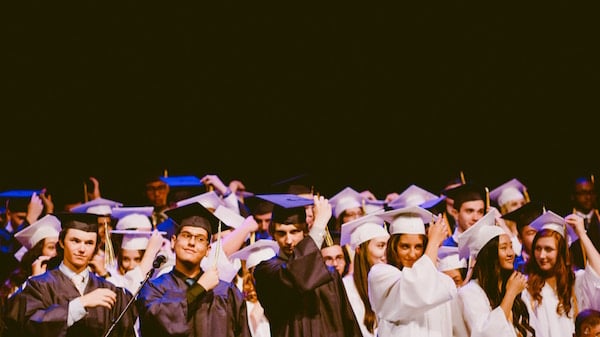Published on
Instilling the Value of Lifelong Learning in Traditional College Students

The EvoLLLution (Evo): Why is it important for today’s traditional-aged students to graduate with an appreciation for the value of lifelong learning?
Michelle Behr (MB): We live in a world of rapid change, and even though traditional-age college students have experienced that change throughout their lifetimes, the educational system hasn’t always provided a good model to help them navigate it.
While it’s a cliché to say that many of the jobs that traditional-aged students will inhabit throughout their lives haven’t been invented yet, it’s nonetheless true. For students to be productive contributors to the knowledge-based economy, they have to be flexible, adaptable and broadly trained. I would argue that now more than ever, the broad exposure, diverse skills and dispositions provided by a liberal arts education are crucial for helping these students navigate the ups and downs that rapid change will bring throughout their lives.
Evo: Given the industry shift towards lifelong learning, do you think that the traditional higher education experience still has a role to play?
MB: Absolutely. The traditional four-year experience is how and where students develop habits of mind and curiosity, along with competence, resilience and a sense of openness.
Evo: What can institutions do to help learners understand that higher education isn’t a one-time process that ends when they turn 22?
MB: By developing those habits of mind that engender lifelong learning and curiosity. We encourage students to engage with the wider world by offering internships and fellowships with external businesses so that students can see, first-hand, how people develop creative solutions to vexing problems. If institutions of higher education construct academic programs that feature multiple perspectives on problem solving, we can open students’ eyes to the complexity of big issues and the importance of bringing different perspectives to bear on solving them. That curiosity and open-mindedness is integral to lifelong learning, both in the classroom and out of it.
Evo: When you think about different avenues for alumni engagement, how can it benefit colleges and universities to encourage former students to return for lifelong learning?
MB: Let me reframe the question around the benefit to students and the economy, rather than benefit to colleges and universities.
If we’re doing what we ought to be doing as colleges and universities, then we make positive contributions to individuals and communities. If we provide a strong grounding for students, they will continue to be learners throughout their lifetimes. If we continue to offer strong, meaningful and relevant programs, they’ll want to find their way back to us. In a sense, this is a case of reaping what we sow: If we properly instill the values of lifelong learning in our students, then we will ultimately benefit when they return. But that benefit is secondary. To us, it’s about providing a strong, meaningful experience to students so that they value education, regardless of what stage of life they’re in.
Evo: What are some of the key characteristics of the student experience that have to be delivered when a learner is enrolled as a traditional-aged student that’s going to keep them coming back?
MB: Fundamentally, institutions need to foster a strong sense of connection. We need to build lasting relationships between our students and faculty so that students want to return.
Second, it’s important to integrate strong academic programs with meaningful co-curricular experiences. Higher education institutions offer a safe place where students can learn how to respect differences and work productively with people who have had different life experiences. This serves students very well, because it underlines not only how diversity contributes to the richness of our personal lives, but also how it makes for strong workplaces.
Finally, it’s important to have a college culture that is forward-looking and forward-thinking, but which also holds fast and firm to its core values.
Evo: How do you balance the need to deliver the forward-thinking, job-focused outcomes students are looking for against the broader question of an institution’s traditions and mission to generate a culture of lifelong education?
MB: Universities are populated with plenty of smart, well-educated people, but I don’t know that anybody has solved that conundrum. It’s a very present tension. On the one hand, institutions are tied to their traditions, but on the other we need to innovate to stay relevant. In some cases, those traditions are innovation and creativity. How do we harness those pieces of our tradition to provide the formative experience that we want to create for our students? That’s the $64,000 question.
Evo: Is there anything you’d like to add about what it takes to create a generation of lifelong learners?
MB: In all things, it’s important for us to be good role models and engage these issues in a meaningful, thoughtful way. A critical way of doing so is to invite students in and solicit their input, so that we can create solutions that work best for them.
This interview has been edited for length and clarity.
Author Perspective: Administrator

